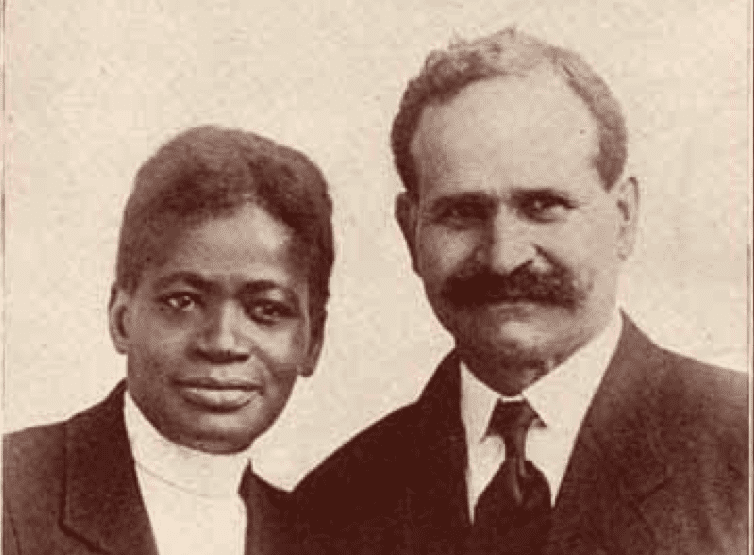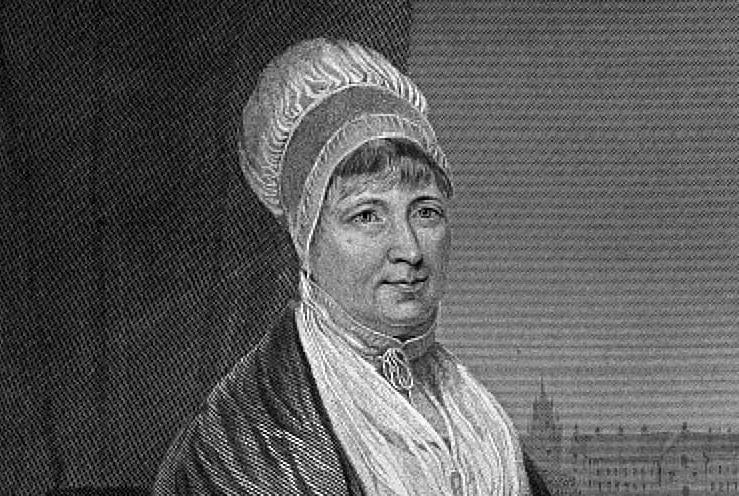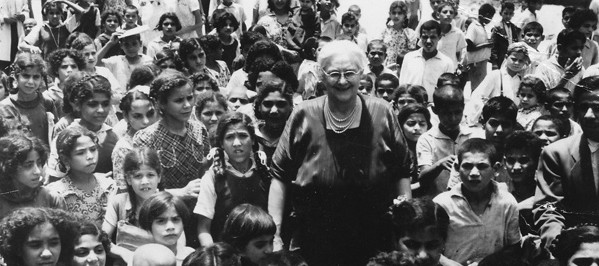
God’s Invitation to Welcome: Practicing Hospitality in a Divided World
By Nikki Toyama-Szeto
Welcoming immigrants and refugees isn’t just an act of kindness—it’s an act of faith, revealing Jesus in the process.
Subscribe to the CSA Newsletter
CSA’s free weekly publication, a carefully curated collection of original articles at the intersection of spiritual formation and social action.

By Nikki Toyama-Szeto
Welcoming immigrants and refugees isn’t just an act of kindness—it’s an act of faith, revealing Jesus in the process.

(1859-1930)
For nearly 30 years Emma Ray, who was born into slavery and raised in poverty in Missouri, ministered to the homeless and transient in the slums of Seattle, Wash., along with her husband, L.P.

(1829-1912)
He captured the world’s imagination by putting his street-corner evangelists in military-style uniforms and sending them into town with marching bands. He gave his women members equal responsibility for preaching at a time when it was considered unseemly for the “weaker sex” to take such a role (“My best men are women!” he once said).

(1780-1845)
The first evidence of Elizabeth Fry’s reforming spirit was her own powerful transformation at age 18 from a frivolous girl who boldly wore scarlet-laced boots to Quaker meeting to a serious young woman who put social outreach above social pleasure.

(1901-1971)
“These people came here for help and for shelter. I am their shepherd, and a shepherd does not forsake his flock,” André Trocmé told Vichy authorities in 1942, calmly defying their orders to stop aiding the Jewish refugees who were making their way into his village in south central France.

(1845-1928)
In 1879, Matthew Anderson was an energetic and ambitious young pastor on his way from Yale to the South to lead a school when he accepted an invitation to meet with Dr. John Reeve, the senior pastor of Philadelphia’s Lombard Central Presbyterian Church.

Described by contemporaries as “touched with genius” and “the most distinguished woman of the 19th century,” Josephine Butler launched the first international anti-trafficking movement on behalf of prostituted women.

“Two things must occupy your thinking powers to the exclusion of every other thing: first, the goal; and second, the momentum requisite to reach it.”

(1887-1961)
In 1942, as Nazi General Rommel pushed deep into Egypt’s northern desert and soldiers of fortune pillaged the rest of the country, a middle-aged American gazed at the hundreds of hungry Egyptian children under her care and prayed for another miracle.

(1824-1907)
Spear-carrying cannibals setting his house afire, an irate chief stalking him for hours with a loaded musket, a native suddenly rising up from a sickbed and holding him captive with a dagger to his heart—the life of John Paton reads at times like a lurid adventure story, with the hero saved at the last possible moment by his own death-defying heroics.

(1552-1610)
Conversion of the Chinese people to Christianity seemed a fruitless cause in the late 16th century. The early influence of Nestorian missionaries in the 7th century and Catholic monks in the 13th and 14th centuries had withered completely, and recent missionary efforts by various Catholic orders had been stonewalled by Chinese authorities.

By David O’Hara
(1891-1942)
Edith Stein was born on Yom Kippur, the Day of Atonement, in 1891 in Breslau, Germany. The date is auspicious: Her writings illustrate her constant concern for atonement, community, and reconciliation, and her life is an example of faithful stewardship of her talents on behalf of the oppressed and in the face of enormous resistance.

The deaconess movement in American Protestantism emerged in the late 19th century concomitant to a dramatic increase in women’s public service opportunities, and it provided a valuable venue for women’s full-time service for God, church, and society.

(1580-1660)
Born of peasant stock in a small village in Gascony, France, Vincent de Paul never envisioned that he would devote his life to the cause of the poor. His strongest boyhood ambitions were to escape his own poverty and elevate himself socially, and it was for these practical reasons he chose the priesthood—the best career path at the time for an intelligent boy of humble background.

(1863-1932)
In September 1878 a 15-year-old girl boldly stepped forward to speak at an outdoor meeting of 5,000 “Salvationists” who had come from all corners of England to celebrate the establishment of the 35th Corps of the Salvation Army in Coventry.

(1780-1847)
Although best known for his role in the “Disruption of 1843,” which led to the creation of the Free Church of Scotland, Thomas Chalmers was a man of diverse talents and undertakings, to each of which he brought enthusiasm, energy, and a power to arouse others to action.

(1909-2001)
Born into Judaism, sidetracked briefly by atheism, and then converted to Christianity, Richard Wurmbrand, the “Iron Curtain St. Paul,” endured 14 years of harsh imprisonment and brutal torture for his faith under communist rule.
Copyright Christians for Social Action at the Sider Center of Eastern University Privacy Policy
1300 Eagle Road, St. Davids, PA 19087 csa@eastern.edu
Web Design by Dayspring